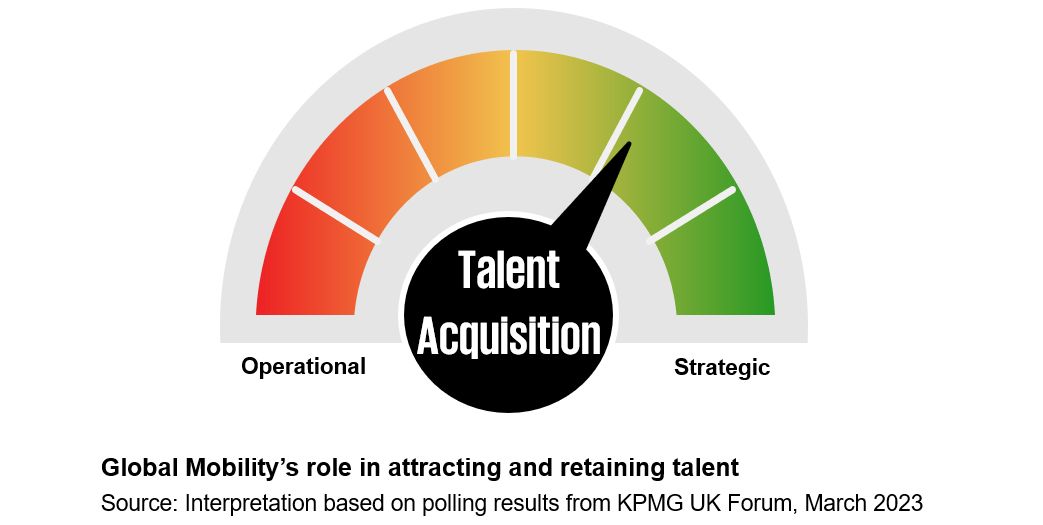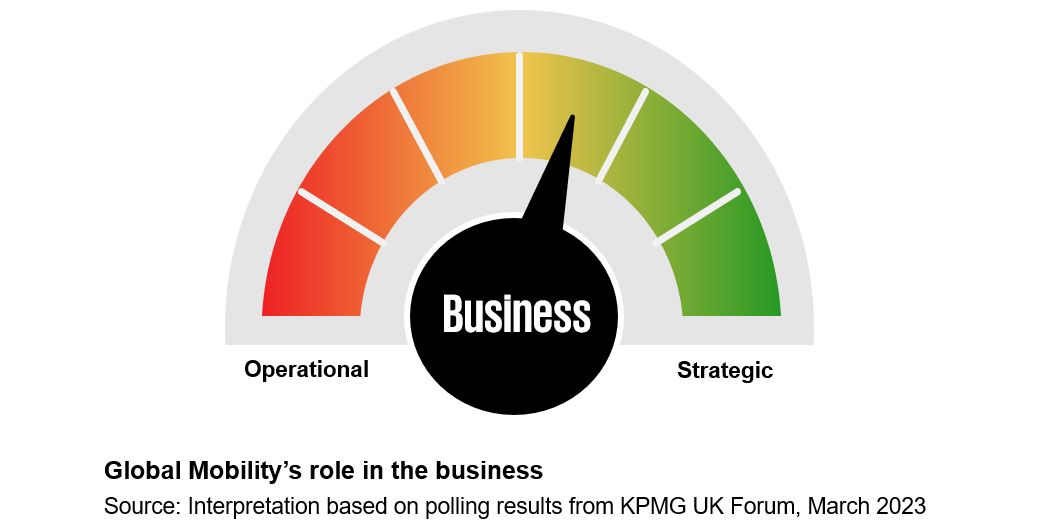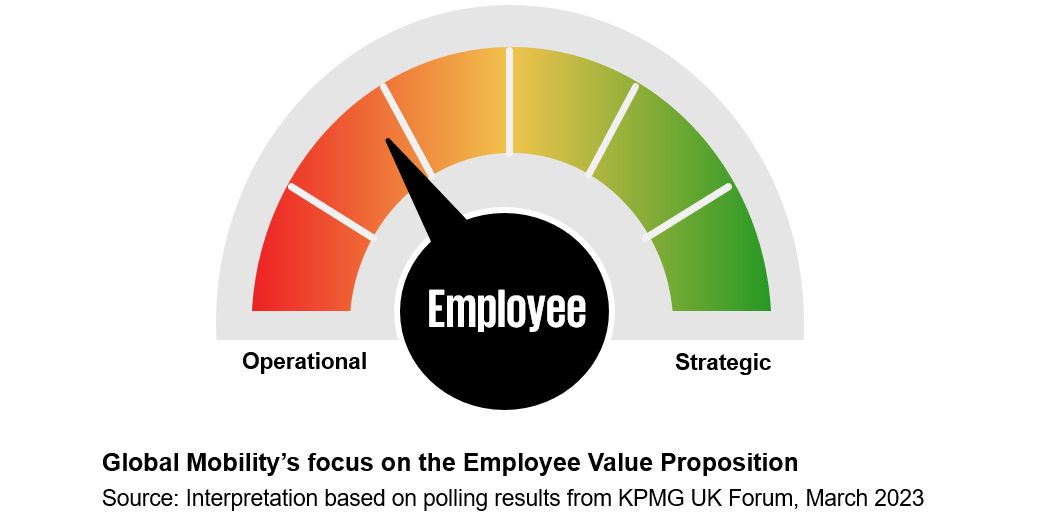Are you using global mobility in your talent acquisition strategy?
KPMG UK shares valuable insights; GM’s involvement in three key areas: talent acquisition, the business, and the employee value proposition 👉https://lnkd.in/gSBrgRca
To support the achievement of critical organisation-wide goals, Global Mobility is transforming into a more strategic function. The question is, where are Global Mobility functions today on their journey to becoming a strategic business partner? At our recent Global Mobility client forum, we had the opportunity to shed some light on this and specifically, in relation to three key Global Mobility stakeholders: Talent Acquisition, the business and the employee.
In the context of global skills shortages and continuing strong demand from individuals to work from anywhere, it has become essential that Global Mobility works with Talent Acquisition to help bring key talent into the organisation. Our poll revealed that over the last 12 to 18 months, nearly 20% of Global Mobility professionals are using Global Mobility as a key enabler of their organisation’s talent strategy. This demonstrates fantastic progress in terms of how far these Global Mobility teams have come in joining forces with Talent Acquisition. There is still some way to go however for many Global Mobility functions. 40% of Global Mobility professionals responded that sometimes Global Mobility is used to attract talent with no formal strategy around this.
With the need for more flexibility in a rapidly changing geopolitical landscape, Global Mobility is evolving from an operational function to a strategic advisor to the business. 40% of Global Mobility professionals responded that the primary ask of them from the business is helping structure moves using flexible and innovative approaches. This positive shift in the business’ perception of Global Mobility’s role shows that overall it is making good headway towards becoming a more strategic function. However, as around one third of Global Mobility professionals are primarily being asked to support with operational tasks and only 10% are leveraging data driven insights to aid business decisions, there is still considerable room to accelerate progress.
The Great Resignation has changed the way people look for, and engage with their work, giving rise to the need to re-evaluate the EVP. Considering that Global Mobility’s “raison d’être” is to support cross-border employees (physically or virtually), only 3% of Global Mobility professionals said changing the EVP was their top priority. As such, significant improvements remain to be made to add more value to the employee stakeholder group.
What’s next?
Global Mobility should continue its strategic journey by partnering with the business and integrating with Talent Acquisition. However, it is critical for Global Mobility to stay focused on taking action to evolve and enhance the EVP. This requires a holistic approach to ensure that employee needs are met, and the emphasis has shifted towards enhancing overall experience, rather than just work experience. Simple steps such as gathering frequent feedback from employees (and integrating it into the programme), embedding greater employee choice in policies and giving more thought as to how Global Mobility communicates and encourages mobility from an ESG perspective can be a great place to start.
Please contact us if you have any comments or would like to discuss further insights on the polls!
Related Insights
Click here to add your own text
Click here to add your own text




